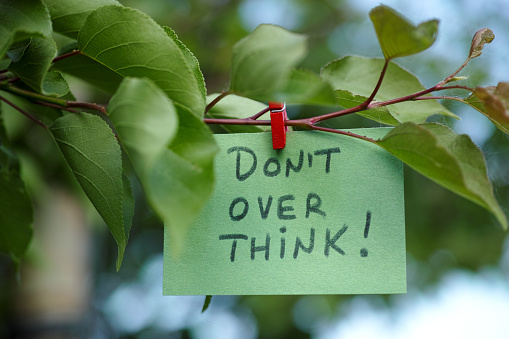
The word ‘procrastination’ stems from the Latin term pro crastinus which, when translated, means ‘for tomorrow’. Procrastination is not a new concept and has been in existence since man’s inception. Procrastination is very common in human beings, remarkably so, in the 21st-century lifestyle. The rat race that characterizes the modern individual’s life has made them prone to frequent bouts of procrastination. While it surfaces occasionally for most people, some people are regular victims of procrastination and there may be different factors working for it.
Procrastination is generically defined as the tendency to avoid stressful and demanding works at hand for as long as possible and replace them with more comfortable and easier tasks. Suppose you are bound to finish a presentation by tonight and take it to your office tomorrow but you scroll your Facebook timeline instead, check Instagram stories, and while away the time until it’s midnight and you ought to pull off an all-nighter so that you can manage to finish the presentation before morning; that’s what we call procrastination. Of course, there are various angles to it and it is different for different people.
Some common misconceptions surround this entire concept of procrastination. You might have heard many people say that people procrastinate because they have very poor time-management skills or they cannot schedule their work properly. No doubt this is a very wrong notion because even if time management is directly related to procrastination, a major chunk of people do it either because they can’t deal with high levels of stress or are incapable of regulating their emotions in a sane manner. This happens because they are not sufficiently resilient and cannot handle complicated emotions in moments of fear and also because they cannot stand negativity. You might be surprised to know but when some people have a lot of difficult work lined up, they procrastinate just because they would not want to face it.

Table of Contents
Is procrastination a mental illness?
The answer to whether procrastination is a mental illness or not is not so complicated to answer if anyone asks you the next time. Procrastination, in itself, is not a mental illness but can be the consequence of some mental health issues like Anxiety, Depression, and Attention-deficit Hyperactivity Disorder(ADHD). Reportedly, people afflicted with ADHD lack time-management skills considerably compared to normal people and thus tend to procrastinate a lot and when ADHD pairs up with bipolar disorder, the effects are worse. With depression, however, the case is different. Victims of depression usually have low self-esteem and this is connected to procrastination. They often doubt their ability to complete any work decently and keep up to the expectations of other people and

therefore avoid the work for as long as possible. The fear of judgment also creeps in at times which dissuades them from doing anything at all. Anxiety is almost similar to depression in its capacity to impact a person’s productivity. It often interferes with their self-confidence accompanied by a consequent fear of failure and thus impedes them from performing any task with an open mind. It also hinders their personal growth.
Some studies also state that procrastination is very closely related to mood and mood swings for that matter. You may think that tomorrow might be the perfect day to finish your pending work and today, your mood just doesn’t support you and you eventually give in. But guess what…that tomorrow never comes. Perhaps you have an extremely stressful job handling way too many responsibilities at the office; that is the time you feel like procrastinating ‘to the last syllable of recorded time’ because the burden of stress is engulfing and overwhelming and enshrouding your well being so much so that you can hardly breathe. You feel like you are numb and use procrastination as a coping mechanism.

Effects of Procrastination
You will be surprised to know that procrastination seriously affects your mental well-being, intensifies stress and chronic procrastination can also lead to a bunch of other problems that have some strong negative effects on your life:
- Poor performance in case of education or work
- Spoils your reputation
- Gives rise to feelings of fear, guilt, anxiousness and worry
- Affects your physical health if you procrastinate and put exercise in off your routine
- Interferes with rational thoughts
- Piles of incomplete work inducing stress
How To Stop Procrastinating?
As cool as it sounds for today’s generation who take real pride in procrastinating, remind yourself every time that it is a very dark practice and can reduce you to a state of immense helplessness. So, here are some effective techniques that can help you overcome procrastination :
Find out the triggering force

Certain things like lack of a proper, well-defined strategy or plan of action, personal dilemmas, lack of directions, other mental health issues can prove to be a potential trigger to your inclination to procrastinate. Find that out as soon as possible and try to remove it with positive motivations. Suppose you find a task to be too difficult and you’re afraid even to begin with it, resort to resources and reach out to people who can help you formulate a strategy to work on it and it’s done! You just need to motivate your mind in the right direction.
Hold Yourself Accountable

Ask a relative, a friend or your parents to help you get your important tasks done. Ask them to check regularly whether you’ve completed it and hold you accountable if you haven’t. This creates a sense of immediate fear and responsibility, just like a child caught with incomplete homework by their teacher. Thus, it will motivate you to finish off everything beforehand, before they actually check if it’s done.
Give space to yourself and keep going

One of the key steps to stop procrastination is to accept that you happen to do to it. It is only then that you can give yourself the required amount of space to procrastinate occasionally, of course, without hampering your work.
Also, if you find yourself procrastinating more, do not lose hope ad motivation. It is a journey just like any other, and you have to keep going. All days won’t be the same.
Seek Clinical Help

If it’s something beyond your control such as a mental illness or other disorders, it’s always the best idea to visit a professional so that they can help you identify the root cause of your procrastination.
Download the Evolve App and try out the ‘stop procrastinating’ journey to help you overcome this unwanted habit better.
Also Read: The Procrastination Cycle
Why Do College Students Procrastinate?
Damayanti Dubey is a final year English major at Loreto College, Kolkata. She is a writer by passion and loves to indulge in languages, especially English, Bengali, and Urdu. She aims at exploring all of their intricacies and nuances. Damayanti is a disciple of Padma Bhushan Pandit Ajoy Chakraborty and is a national scholar of Indian classical music. She has always believed that a sound mind, free from the clutches of regressive and negative thoughts is the key to living a healthy life and makes efforts to promote mental wellness through the power of her words.
Damayanti believes in thinking beyond boundaries.